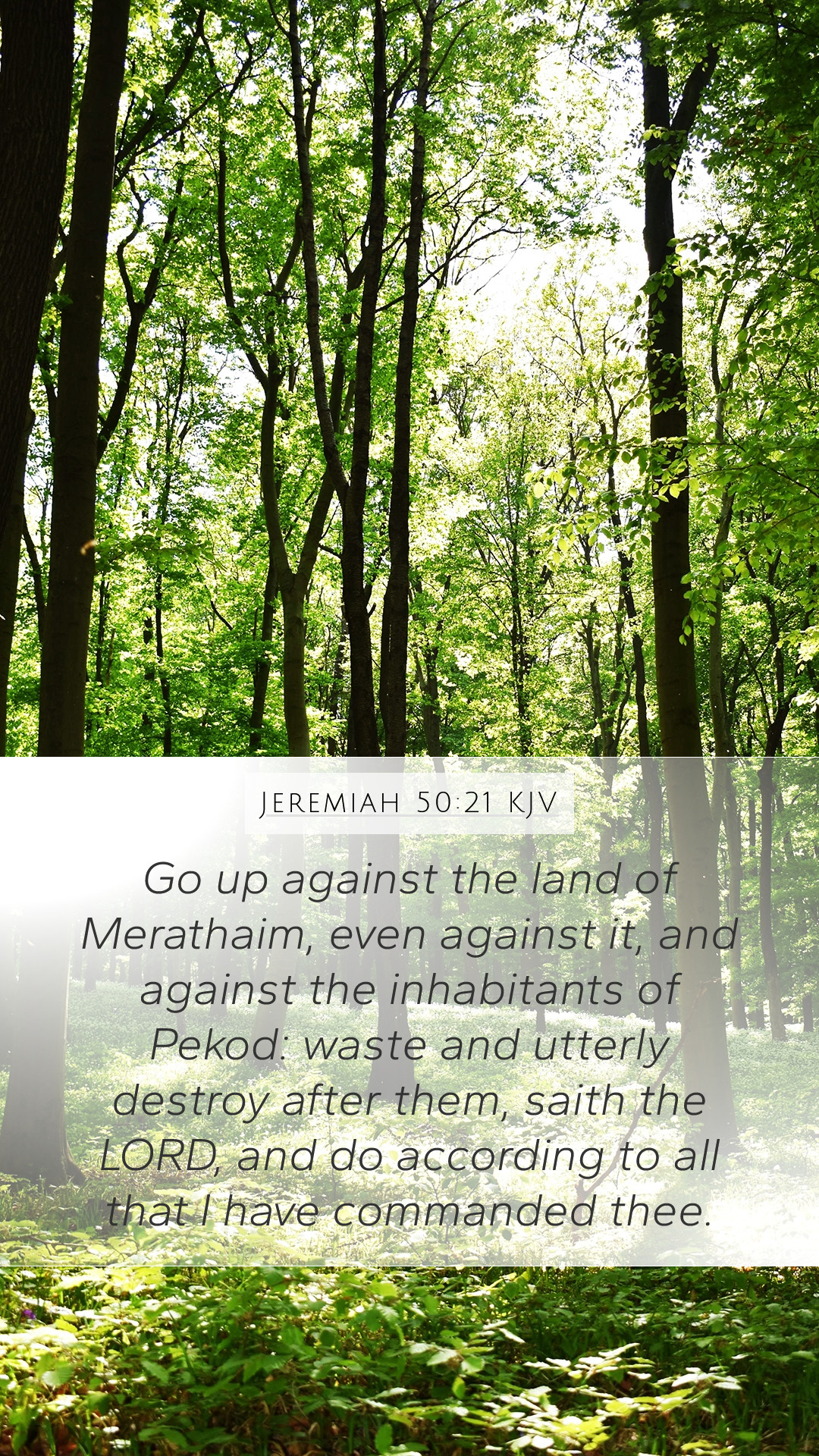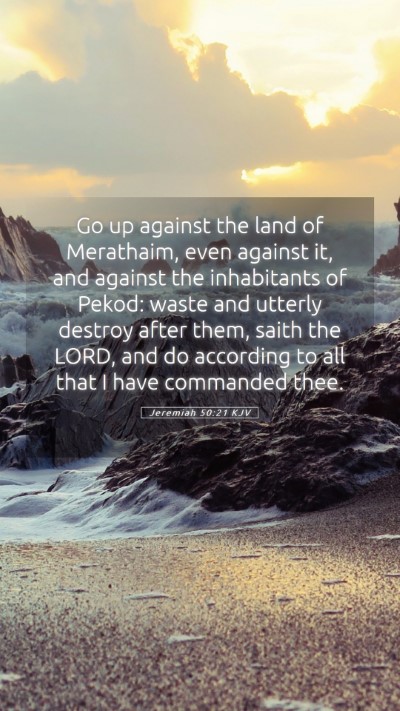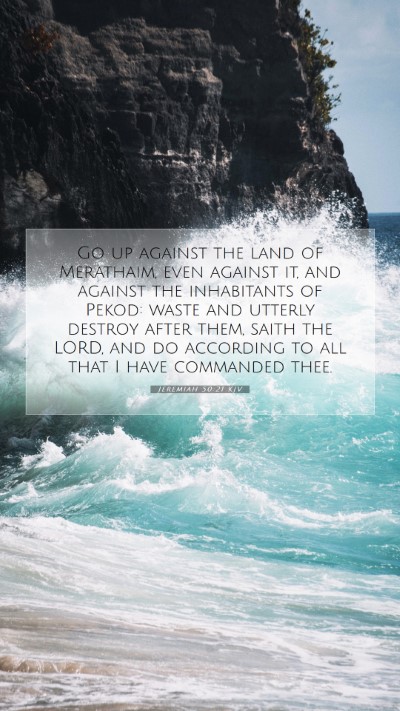Jeremiah 50:21 - Bible Verse Meaning and Commentary
Verse: "Go up against the land of Merathaim, even against it, and against the inhabitants of Pekod: waste and utterly destroy after them, saith the Lord; and do according to all that I have commanded thee."
General Overview
This verse is part of a prophetic message delivered through the prophet Jeremiah, focusing on the impending judgment against Babylon. It serves both as a call to action for the Israelites and as an expression of divine retribution against their captors. The terms Merathaim and Pekod are symbols representing areas or peoples associated with Babylon’s conquest and oppression.
Insights from Public Domain Commentaries
Matthew Henry's Commentary
Matthew Henry elaborates on the themes of judgment and divine command in this verse. He emphasizes that these names, Merathaim and Pekod, symbolize the double oppression and punishment awaiting Babylon. Henry underscores that God's destruction of the oppressors is assured, reflecting God's righteousness in enacting justice upon the wicked.
Albert Barnes' Notes on the Bible
Albert Barnes provides a contextual analysis of these names, suggesting that Merathaim may refer to a land characterized by rebellion, while Pekod refers to a people who committed grievous sins against God. Barnes highlights the irony of these names, indicating that they serve to exemplify the multifaceted nature of judgment that Babylon faces, aligning with the broader narrative of destruction promised throughout the prophetic literature.
Adam Clarke's Commentary
Adam Clarke discusses the historical context of this prophecy, noting that the call to destroy Babylon echoes Israel's deliverance from Egypt. Clarke asserts that Jeremiah conveys God's command for retribution against Babylon, encapsulating the belief that those who do evil will ultimately face consequences. He also stresses the importance of obedience to God's directives by those called to enact His will.
Theological Implications
The call to "waste and utterly destroy" is a reflection of God's holiness and His intolerance toward sin. It illustrates a key aspect of biblical theology where divine justice cannot be overlooked, and those who oppose God's kingdom face inevitable judgment. This verse not only addresses the ancient context of the Israelites under Babylonian rule but also foreshadows the broader themes of redemption and justice in the entirety of scripture.
Application for Today
For contemporary readers, the verse can be interpreted as a reminder of the significance of divine justice in our lives. It encourages believers to trust in God's sovereignty and justice, knowing that He is aware of oppression and sin. The command to destroy can be metaphorically applied to the contemplation of sin in one's personal life, urging individuals to turn away from what leads them away from God.
Related Bible Verses
- Isaiah 13:19 - A prophecy about the destruction of Babylon.
- Jeremiah 25:12 - The prophecy of Babylon’s downfall after seventy years.
- Revelation 18:2 - The New Testament depiction of Babylon the Great’s fall.
Conclusion
In summary, Jeremiah 50:21 serves as a significant verse within the prophetic literature, carrying themes of divine judgment, justice, and instruction. Through in-depth analysis and understanding of the historical and theological context, this verse provides rich material for Bible study groups and individual study, enhancing our comprehension of Scripture and its application in daily life.


